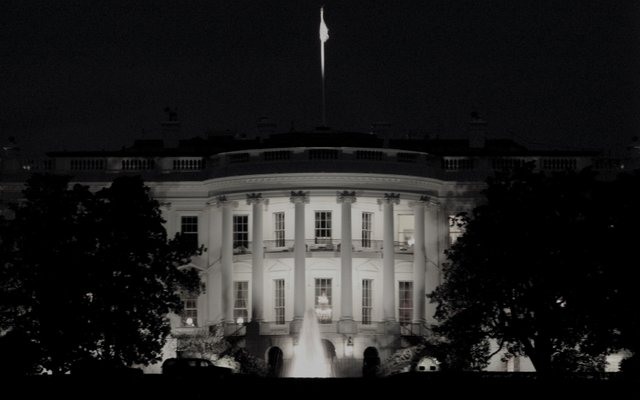
The National Archives and Records Administration’s publication “One Hundred Milestone Documents” in United States history lists various public laws, court cases, treaties, speeches, and other documents that reflect the American commitment to continue work towards the formation of a more perfect Union. The first document included is the Lee Resolution of 1776, with the list wrapping up in 1965 with the Voting Rights Act. The Administration purposefully does not list documents after 1965 in acknowledgement that historians are rarely objective when dealing with recent events.
One document with the potential to be placed on a future milestone document list is Order Number 3915-2017 of the Office of the Deputy Attorney General, the Appointment of Special Counsel to Investigate Russian Interference with the 2016 Presidential Election and Related Matters. The order was executed on May 15, 2017 by Acting Attorney General Rod Jay Rosenstein. In this document, Rod Rosenstein appointed Robert Swan Mueller, III to serve as Special Counsel for the Department of Justice and authorized the Special Counsel to conduct the inquiry the Federal Bureau of Investigation’s Director James Comey had confirmed in Congressional testimony. The authorized scope of the investigation included determining whether any links and coordination existed between the Russian government and associates of the campaign of Donald Trump, any matters that arose or arise from the investigation, and other matters that are within the scope of Title 28, Part 600, Section 4 of the Code of Federal Regulations. The Special Counsel’s mandate includes in ‘Section C’ power of the Special Counsel to prosecute federal crimes that were discovered during the investigation and a declaration of the section of the Code of Federal Regulations that are applicable to Mueller.
Section 1 of Title 28 states a Special Counsel should be appointed by the Attorney General, or in cases of recusal, the Acting or Deputy Attorney General to oversee an investigation or prosecution of individuals and matters where a conflict of interest in the Department of Justice exists so great that it would be in the interest of the public for an outside person to lead the inquiry (28 C.F.R. § 600.1). Section 3 of Tile 28 details that no ordinary individual should be appointed Special Counsel, requiring a lawyer, “with a reputation for integrity and impartial decision making, and with appropriate experience to ensure both that the investigation will be conducted ably, expeditiously and thoroughly” (28 C.F.R. § 600.3). Robert Mueller certainly meets these requirements as a Juris Doctor, Assistant Attorney General for the Criminal Division, Attorney for the Northern District of California, Acting Deputy Attorney General, and 6th Director of the Federal Bureau of Investigation, let alone a highly decorated Vietnam War. Section 4 of Title 28 gives authority to the Special Counsel to investigate and prosecute federal crimes, “in the course of, and with intent to interfere with, the Special Counsel's investigation, such as perjury, obstruction of justice, destruction of evidence, and intimidation of witnesses” (28 C.F.R. § 600.4).
Sections One, Three, and Four of Title 28 are pertinent to the ongoing investigation and relate to current news and events in which details of an ever-growing effort to obstruct the Special Counsel’s investigation have come to light. A conflict of interest existed between the President as chief administrator of the Executive Branch and the Attorney General Jefferson Sessions, III, who as a Trump campaign executive met with Russian foreign nationals and government officials and had knowledge of communications between those Russians and other Trump campaign employees. With the Attorney General’s involvement and subsequent recusal, Rod Rosenstein was fully within his authority under Section One to appoint Robert Mueller top oversee any investigation into the conspiracy. Currently, a coordinated campaign to impugn the integrity of Mueller is ongoing, with various attempts to declare he has conflicts of interest concerning donations to certain campaigns and a spat over membership at a Trump owned golf course. More perturbing though, are attempts by President Trump himself to keep the investigation “down” (Shear), including his firing of numerous Department of Justice Officials including two F.B.I. directors. More recently, it has been disclosed that President Trump has attempted to fire Robert Mueller and is considering firing Rod Rosenstein as well as Jeff Sessions and the latest Trump appointed FBI director, Christopher Wray. These attempts, among others, to obstruct and delay the investigations fall under the authority granted in Section 4 of Mueller to examine.
In less than one year, the Special Counsel has produced multiple grand jury indictments of Trump associates, Russian nationals and business entities, as well as Americans not associated with the President, guilty pleas, and at least one prison sentence so far. The Trump presidency has broken records in terms of fastest special counsel appointment but more importantly has broken several government institutions, the law, and the trust of the American voters and global community. The Special Counsel must be allowed to continue his investigation for the benefit of our election system, the public, and the rule of law.
References
General Powers of Special Counsel, Title 28 C.F.R., Chapter VI, § § 600.1-601.10
Rosenstein, R. J., Deputy Attorney General of the United States. (2017). Order Number 3915 -
2017 - Appointment of Special Counsel to Investigate Russian Interference with the 2016
Presidential Election and Related Matters. https://www.justice.gov/opa/pressrelease/file/967231/download
Shear, Michael D. “Trump Reacts to Cohen Raid, Syria and More: An Annotated Transcript.”